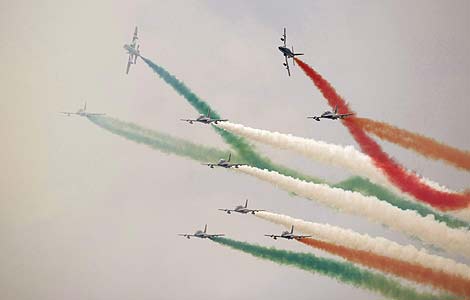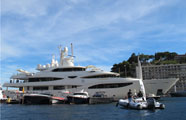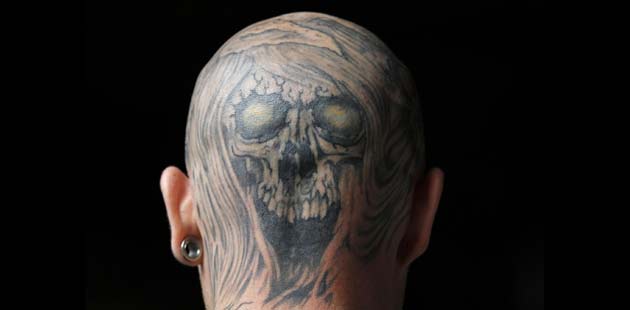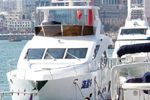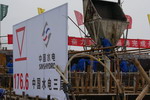Sky's the limit for owners of private jets
Updated: 2011-09-26 11:39
By Yu Ran and Wang Ying (China Daily)
|
|||||||||||
|
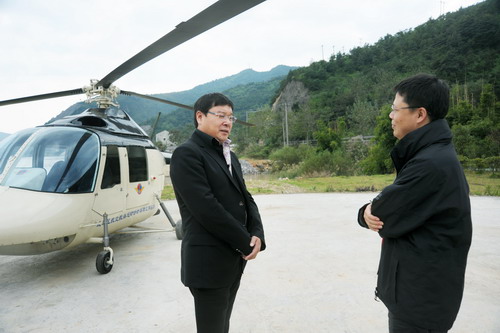 Guan Hongsheng (left), a tycoon in Wenzhou, set up Wenzhou Lucheng Hailukong Club in 2008 in the city to "introduce a healthy and challenging lifestyle" to his business friends. |
Guan, who flies helicopters, said that the application process must be simplified. "The regulations are outdated and need to be reviewed," he said.
In August the Civil Aviation Administration of China also decreed Alxa and Genhe of the Inner Mongolia autonomous region to be test areas.
In March the head of the administration, Li Jiaxiang, said low-altitude airspace would be opened up gradually in the provinces of Guangdong, Hainan, Heilongjiang and Jilin.
"This is part of China's plan to open part of its low-altitude airspace over the next five to 10 years for commercial aviation," said Yao Jun, an analyst at China Merchants Securities.
"Sooner or later the sky will be open to us private helicopter owners. We fly helicopters because we love doing it; there are no sinister, illegal motives."
At the moment, Guan has a student pilot license that allows him to fly alongside an instructor. There is a one-off lesson fee of 10,000 yuan and a charge of 380 yuan an hour.
"Normally about 10 of us share the fees of hiring an instructor by flying my helicopters for one or two days over the suburbs of Wenzhou. I don't want to make money from my helicopter, but to get young people along for some quality leisure."
The club's motorcycling and motorboat activities add to its inventory of summer fun.
Guan's quest for a life of excitement led him to sports "with high costs and risks". By the time he was 40 he had licenses to drive racing cars, to operate motorboats, to sail yachts, and to fly planes as a student.
Yu Zhiwu, 37, a club member and organizer, followed in Guan's tow and became a fan of motorboats and helicopters too. Such pastimes demand passion, time and a lot of money, he said.
As the moneyed class of Wenzhou grows, the club's membership has grown, too. It now has more than 100 members, including 80 percent from the so-called rich second generation.
There is even an altruistic side to this club for the rich.
"We want to get young people out of unhealthy karaoke bars," Yu said.
Since buying helicopters in the pursuit of pleasure is obviously something few can afford, others look for alternatives that are cheaper but that still give them a buzz.
Chen Bin, 41, a life insurance agent from Wenzhou who likes flying and photography, spent nearly 100,000 yuan so he could take to the skies using a powered parachute.
"Flying and taking photos that way is much safer than flying a helicopter," said Chen, who became interested in aerial photography four years ago.
"If you have engine problems with the parachute you can simply glide to a safe landing."
Obtaining a license to operate the powered parachute took only a month, Chen said, compared with the two years normally required to obtain a helicopter pilot's license.
Chen received much media attention recently after he flew with his powered parachute to take some of the first pictures of the aftermath of the high-speed-train crash near Wenzhou in July that killed 40 people.
He also heads a nongovernmental air rescue team, one of the first amateur rescue groups in China. "We want to expand this leisure hobby of flying to helping people in accidents."
Chen is also the organizer of a paragliding club with over 60 members, and on weekends and during holidays, club members use low-altitude airspace to feel the freedom of the sky. He acknowledges that this flying is done without official approval.


